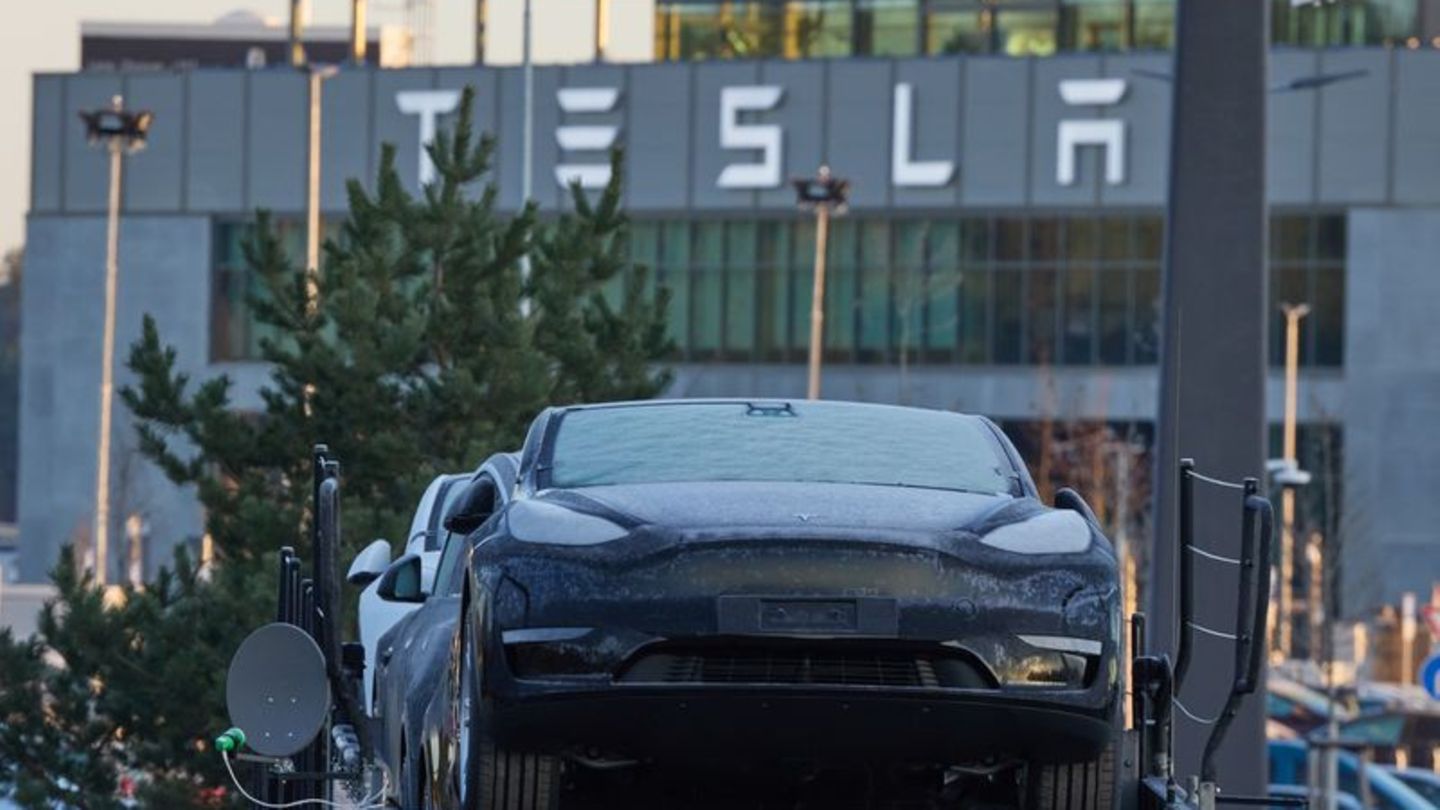The announced staff cuts at Tesla also affect the only European factory near Berlin. Details remain unclear. However, far fewer than 3,000 jobs are said to be affected.
The US car manufacturer Tesla wants to consider job cuts at its only European factory in Grünheide near Berlin, but at the same time rejected reports that 3,000 jobs in the factory would be affected. Tesla boss Elon Musk wants to cut more than one in ten jobs in the company worldwide due to the slowdown in the electric car market and weak sales, as he announced in an internal email. “We are convinced that only an efficient and lean organization is well positioned for future challenges. Our experience shows that this approach contributes significantly to our success,” said a spokeswoman for Tesla in Grünheide upon request.
Regarding the announced job cuts, it was said: “We are examining this measure and will pursue it for the Gigafactory Berlin-Brandenburg against the background of all labor law and co-determination requirements with the involvement of the works council.” The number of 3,000 affected positions mentioned in media reports “has no basis whatsoever.”
There was initially no information as to how many jobs at the electric car manufacturer in Grünheide might be affected. More than 12,000 people now work at the plant in Grünheide. Recently, Tesla’s plans to expand the factory sparked controversy. In addition, an attack on the car factory’s power supply caused uncertainty. During a visit to the factory in Grünheide in March, Tesla boss Musk said that he was sticking to expansion plans. Meanwhile, environmental groups continue to protest against the electric car manufacturer: Some activists have been occupying a forest near the factory in Grünheide since the end of February and camping in tree houses.
Among other things, Tesla is feeling the effects of the tough price war in China, the largest car market, and delivered surprisingly fewer vehicles worldwide in the first quarter of almost 387,000 cars than a year before. Even before that, after years of strong growth, doubts had already increased about the pace of growth in the electric car market.
Source: Stern




